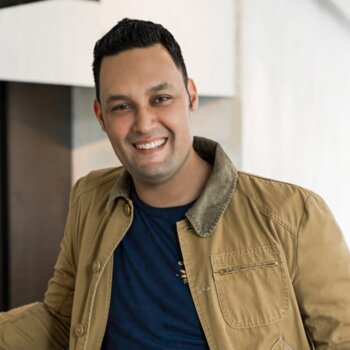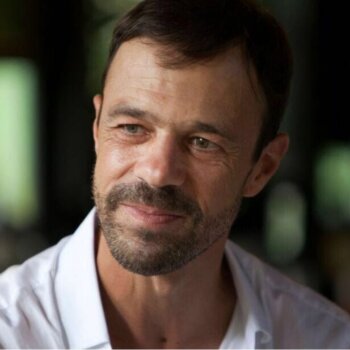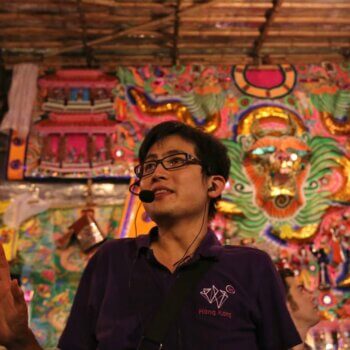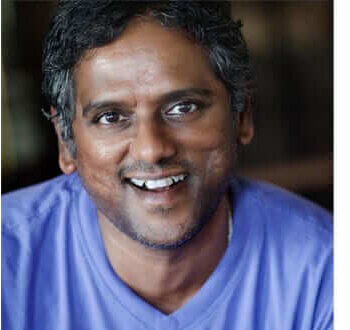Meet Utkarsh Kawatra, Co-Founder of BloodConnect Foundation. Utkarsh is a social entrepreneur running a not-for-profit social business, BloodConnect which acts as a link, connecting people who need blood with those who are willing to donate blood.
Tell us about yourself
I was born in New Delhi, India and did my schooling from Delhi Public School, R.K. Puram. I later decided to pursue an integrated Masters Program at one of country’s premier institute IIT Delhi in Mathematics and Computing courses. It was during my sophomore years that I decided to involve myself with social service clubs and started BloodConnect Foundation. The initial aim was simple – helping people in urgent need of blood but with much time & effort, it diversified and expanded to become one of India’s largest youth initiatives in this field.
Having the mindset of solving social problems, I also co-founded SIFE (now called Enactus) chapter of IIT Delhi where my team worked with the Burmese refugees and trained community leaders and women entrepreneurs, helping them generate alternate sources of income.
What is BloodConnect and how did it all start?
In 2010, Nitin Garg (other Co-Founder) required blood for one of his family members and so he went door to door in the campus to look for voluntary blood donors. Seeing so many people willing, he realized how youth was willing to help out in case of emergencies. Nitin got inspired to help others and after handling a few more blood donation requests in the university campus, he started BloodConnect as a helpline and roped me in.
However within a year of running this helpline, we realized that this was just a temporary solution because we were only focusing on demand rather than ensuring a continuous supply to the blood banks and so we shifted our focus on supply by organizing blood donation camps and created a BloodConnect platform. We also emphasized on making it a youth movement by organizing awareness activities to motivate people and inspire them to donate blood as India only needs 2% of its youth to donate blood regularly. This led to the evolution of BloodConnect from a mere helpline service to a 360-degree solution provider with a repeatable model for expansion.
How has it been like managing the business since?
Without a doubt, running an organization has been a tremendous learning experience. Initially, I focused and learnt a lot about managing operations. Starting as a student organization, it was even more challenging and hence I was involved in ensuring complete proper handovers was done to the next team. I also managed different volunteer teams with diverse backgrounds and would take any role to ensure issues were being solved. It required massive amount of patience and trust to come up with a system to create teams and delegate departmental tasks. Since past two years, I have learnt to think long term and have mainly taken up a strategic role where I work with my team to formulate new initiatives such as our first expansion, first major collaboration, first mass awareness activity and first innovation in camps. Overall, I have learnt that youth has a very important connect to bring a change in the society.
Did you find anything particularly difficult during the startup? How did you overcome it?
BloodConnect functioned as a college organization for the first two years. Although this helped us initially but it was becoming an obstacle after a couple of years as other colleges did not welcome the idea of supporting an organization from a different college, hence limiting our expansion. It was that time that we had to make a decision of registering BloodConnect has an independent organization. This was a very difficult decision because our college had provided us with recognition, volunteers and financial support.
Detached from the college body, we had difficulties in finding volunteer leaders and financial support. However, the team was motivated enough to work and contribute financially as well. We setup process to expand and develop leaders internally. One year later, we got much needed financial support, expanded and became a magnet for youths again.
What was the initial reaction from other colleges?
Initially we did not get a really good reaction from colleges. We were not able to explain what our value addition was. However with time, we have started bringing innovations in our blood donation camps and awareness activities. Our growing focus on donor experience has ensured that we develop more long term collaborations. We still do sometimes face troubles, since our blood donation camps are not just dependent on our work but also that of the blood bank (which collects the blood in the camp). However, we try our best to ensure that our collaboration with the corporate/RWA/college does not get impacted by this.
Do you face a lot of competition in this industry? What is your strategy against your competition?
There are a lot of other organizations in this field but the problem of blood shortage is so huge that we need many such organizations to collaborate and help out. There is a 30% country-wide shortage to cater to and hence we need more people to join in. However, BloodConnect certainly challenges the status quo established by social organizations in this field.
- We are completely youth led – A team of 150 youth is running all the operations.
- We only organize camps with Govt. blood banks, which provide help to the most backward sections of Indian society.
- We do not charge any fees of administrative costs for our services.
- Our comprehensive approach with our helpline model where volunteers coordinate with both, requester and a donor is unique and differentiates us from others.
- We constantly innovate donation camps by making them theme-based and urge people to donate for a cause and not for a gift, making it voluntary.
What are your long term plans for BloodConnect?
- Our current focus is to make sure we save as much lives as possible by collecting blood through our current activities. We want to expand our operations and collect more than 90,000 units across 80 cities saving 170,000 lives.
- We would also like to reach out to more than 1.5 million individuals via our awareness activities and social media. In future we would also like to build a multi-layered database of more than 1 million individuals so that our helpline can provide quick access to the donors for emergency requests via call, SMS or emails.
- An online tracking and management system will be able to locate blood donors using location services and a mobile app will utilize today’s technology to facilitate faster communication.
- We also want to build an alliance through an online portal called Blood360 with at least 100 organizations. This will ensure we add at least 8.5 million donors and support over 2 million donations via helpline and online management system.
If you could start all over again, would you change anything about your approach? If so, what?
I would not really change anything on the ground level activities, but I would certainly add or build an online portal for facilitating blood donation faster. At our current pace, we would not be able to solve the problem of blood shortage within 30-40 years. With the growing shift to the digital domain, having a portal which is user friendly, connects with social media and supports all the requirements for this cause, is essential. However, we are in the process of doing this and it is one of the our core long term strategies.
Do you feel being geographically located in Asia has been a boon or a bane. Either ways, what factors have led you to believe that?
There are both positives and negatives of being located in Asia. India provides a lot of opportunities to solve social problems and make an impact in the society. I do not really know if this is a positive or not, but we are never short of opportunities to make an impact here. In every aspect there is a scope of improvement. I believe this is one of the most important reasons why in India, we have nearly 1 NGO for every 400 people.
However, though this is a big opportunity, being in India means that it is really tough to get support to work on this opportunity. We have to spend half our time ensuring the sustenance of our organization and solving various administrative issues. I personally, spend more than half my time trying to get funds for BloodConnect. This leaves less than half the time to look at operations and ensuring continuous impact. Despite of having many NGOs in India we are still a developing country and are not able to solve simple social problems. In this regard, I believe Asia has still a long way to go. In US, if you have one good idea, there will be no dearth of people willing to support you for it. It will take India another 5-10 years to reach to that level.
What are some personal principles or personal values that guide you and your career?
I always believe in having fun while working. I give my 100% to anything I do, and I also ensure that I enjoy it. This is what always helps me and keeps me motivated to continue working. Keep smiling, keep working, you are bound to achieve success.
What is your definition of success?
Being satisfied with what you have achieved till now while still being ambitious to work towards your next big goal.
What do you think are the most important things entrepreneurs should keep in mind?
Every idea starts at a very small level. Do not compare yourself to the Ubers, Whatsapp, Flipkarts of the world just right away. Give it time and work on it- it might take a few more years, but you will achieve it.
In your opinion, what are the keys to entrepreneurial success?
- Desire to work towards your goal day in day out
- Power to sell your idea to others
- Management skills to lead the team towards a common vision.
Follow BloodConnect on social media:
Website: www.bloodconnect.org
Facebook: https://www.facebook.com/BloodConnect
Twitter: https://twitter.com/BloodConnect01
LinkedIn: http://www.linkedin.com/company/bloodconnect-india?trk=prof-0-ovw-curr_pos
































